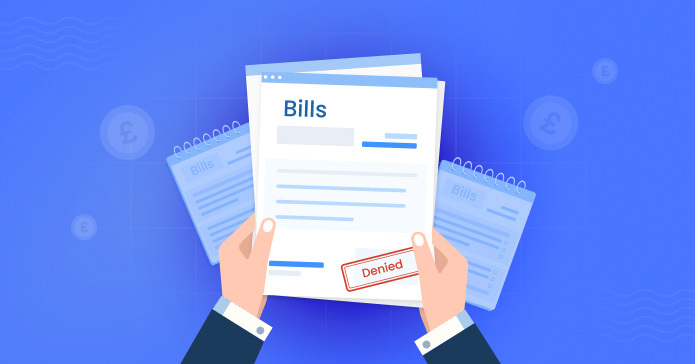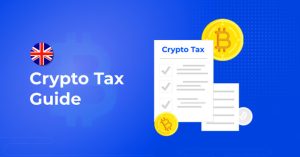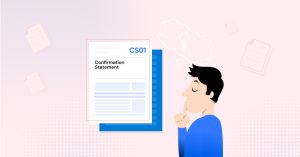When you're running a small business, understanding which expenses you can and cannot claim is crucial for staying compliant with tax laws while optimizing your taxable income. One term you may encounter during this process is "disallowable expenses." But what does it mean? And more importantly, how does it impact your business finances?
This guide is designed to answer the following;
- What are disallowable expenses,
- What are examples of disallowable expenses?
- What are disallowed expenses in HMRC?
- What is the disallowance of expenses?
- What expenses are allowed without receipts for HMRC?
- How they differ from allowable expenses, and how they relate to UK tax laws, including HMRC rules and corporation tax.
By the end of this article, you'll understand what you can claim, what you can't, and how to stay on top of your tax returns with confidence.
What Are Disallowable Expenses?
Disallowable expenses are costs you can’t deduct from your taxable income. These are usually expenses not directly related to running your business or those used partly for personal purposes.
For instance, any spending considered personal or unnecessary for your business operations is likely a disallowable expense.
What Are Allowable Expenses?
By contrast, "allowable expenses" refer to costs that are necessary for your business operations and can be deducted before calculating your taxable profits. This includes expenses like rent for office space, employee wages, and utility bills. Allowable expenses reduce your overall tax liability by lowering your taxable income.
The distinction is simple but critical—claiming the wrong expenses could lead to HMRC rejecting your deductions or even triggering an investigation into your finances.
What About Disallowable Expenses for Corporation Tax?
For businesses subject to corporation tax, disallowable expenses play a significant role. If you include disallowable expenses in your tax return, they won't reduce your profits liable to corporation tax. This means you'll owe more tax than you might expect, which can create cash flow issues for small businesses.
Ensure your records properly distinguish allowable and disallowable expenses to avoid overpaying corporation tax—or attracting penalties for incorrect filings.
What are Examples of Disallowable Expenses?
To make things clearer, let's go over specific examples of disallowable expenses. Think of these as "red flags" that HMRC won't accept as valid deductions.
Personal Expenses
Any expenditure that is personal rather than business-related cannot be claimed as an allowable expense. For example, taking out cash from your business account for personal use or treating yourself to a Netflix subscription won't fly with tax authorities.
Entertaining Clients
Taking a client out for dinner or sponsoring a lavish event might sound like a business expense, but HMRC doesn't agree. Business entertainment is considered a disallowable expense because it isn't essential to your business's operation.
Non-Business-Related Travel
Travel that isn’t directly related to your business, such as holidays or commuting from your home to your usual place of work, cannot be claimed as an allowable expense.
Fines or Penalties
Did you incur a parking fine while running business errands? Unfortunately, you can’t claim it as a business expense, even if the fine happened during a work-related activity. Similarly, late payment penalties to HMRC fall under disallowable expenses.
Asset Depreciation
While depreciation represents a legitimate business cost, HMRC doesn’t allow it as a direct deduction. Instead, you may be able to use capital allowances to account for the depreciation of certain assets.
What are Disallowed Expenses in HMRC?
HMRC has clear rules about disallowed expenses, with the main principle being that expenses must be "wholly and exclusively" for business use to qualify as allowable. Anything that doesn’t meet that criterion will be rejected.
Here's a quick breakdown of common disallowable expenses HMRC will flag:
- Private use of office utilities, like using company broadband for personal browsing.
- Clothing that isn’t a uniform or safety wear (e.g., everyday clothes).
- Personal insurance policies that are not required for business activities.
- Political donations.
To ensure compliance, HMRC recommends keeping thorough records of your financial transactions and separating personal and business expenses as much as possible.
What Is the Disallowance of Expenses?
The term "disallowance of expenses" refers to the process where HMRC or your accountant identifies and excludes non-permissible expenditures from your tax calculations. Failing to disallow certain expenses can lead to inaccurate tax filings, which might trigger penalties or audits.
For corporation tax, the disallowance of expenses ensures that profit adjustments reflect only the costs truly linked to your business's operations, keeping filings accurate and lawful.
What Expenses Are Allowed Without Receipts for HMRC?
Wondering if you can claim any expenses without receipts? The short answer is yes, in some cases. HMRC does allow certain claims even without receipts, although you’ll still need to provide other proof of the expense, such as bank statements or mileage logs.
Common Allowable Costs Without Receipts
- Business Mileage Claims - If you use your personal vehicle for business purposes, you can claim mileage at HMRC's approved rate (currently 45p per mile for the first 10,000 miles). However, you must keep a logbook as evidence of the miles travelled. To use the business mileage calculator click here.
- Simplified Expenses - Under HMRC's flat rate scheme, certain costs like working from home can be claimed without providing exact figures. These flat rates simplify expense claims for small business owners. To calculate how much VAT flat rate you`ll pay click here.
That said, it’s always better to keep receipts wherever possible to provide indisputable evidence of your claims. Digital solutions like expense tracking apps can help you store and organise receipts on the go.
Ensure Compliance and Optimize Your Tax Deductions
Understanding the difference between allowable and disallowable business expenses is crucial for effective tax management and saving money. Allowable expenses, such as office supplies or travel costs, can reduce your taxable income, while mistakenly filing disallowable expenses could result in penalties from HMRC.
By following HMRC guidelines and seeking expert advice, you can optimise your tax returns and keep more of your hard-earned profits to invest back into growing your business.
Want help simplifying your tax filings and avoiding costly mistakes? Contact a qualified accountant or explore HMRC's guides for small businesses today to take control of your business finances!













